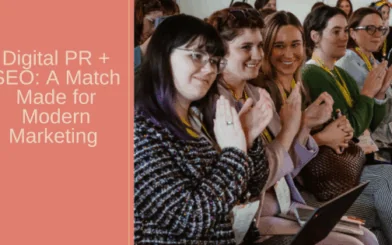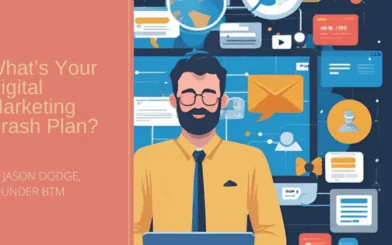No time to read? Listen to our discussion on Episode 29 of The Redirect Podcast, beginning at 22:33.
Brands have been noticing a drop in organic reach on Facebook over time, and we have long seen the writing on the wall. In Episode 22, Adrienne mentioned testing in other countries, in which brand and publisher content was relegated to a separate “Explore” tab, rather than showing up on people’s news feeds as usual. At the time, officials said there were no current plans to roll this out on a global scale, but of course we didn’t believe that.
Well, it was announced by Facebook yesterday that over the next few months, they will be making updates to their ranking system that will result in more “meaningful” interaction. As a consequence, this will have a negative impact on what Mark Zuckerberg referred to as “public content”: posts from businesses, brands, and media.
Adam Mosseri, Facebook’s VP of News Feed, explained this update is not the same as the recent tests involving the Explore tab. “Public content” from Pages will still appear in users’ news feed, though much less often. These posts will be demoted in favor of showing posts from users’ friends and family near the top of the feed.
How Facebook Ranking Works
To understand where this is coming from, let’s back up and explain how Facebook “decides” what shows up on a news feed. Likes, comments, and shares are ranking signals and help the platform determine what content a user might be interested in seeing. As the video in Facebook’s announcement explains, posts you are likely to interact with are ranked higher in your news feed. Now, person-to-person interaction will be valued more than person-to-Page interaction to determine how posts rank.
To be clear, organic Page content is NOT being eliminated from the news feed (at least for now). So there is still potential for brands to have organic reach, but we suggest you don’t hang your hat solely on that chance.
Benefits of the “Death” of Organic Page Reach
This change is framed as being beneficial for users’ well-being and creating fewer scrolling sessions in which people are passively reading or watching videos. In recent years, this behavior has been linked to “FOMO” and feelings of unhappiness. The idea is to prioritize interaction to help people feel more connected. (You mean this pioneering social media site is going back to being social?!)
Facebook admits they expect overall time spent on the platform will go down because of these changes, but they also expect the time people do spend will be “more valuable.”
They also say they will continue to demote “engagement-bait,” as it is not considered to create meaningful interaction.
Additionally, according to Digiday, Facebook believes these changes will also “reduce the occurrence of fake and offensive content in the news feed.”
Let’s hope.
What Does This Mean for Brands?
Facebook’s announcement lays it all out for us: “Because space in News Feed is limited, showing more posts from friends and family and updates that spark conversation means we’ll show less public content, including videos and other posts from publishers or businesses.”
And just to twist the knife a little bit:
“As we make these updates, Pages may see their reach, video watch time and referral traffic decrease.”
But don’t despair, fellow marketers. This is not the end of the road, because…
Facebook Ads Aren’t Going Anywhere
This is where we point out that paid Facebook ads will be an even more important piece of your social media strategy going forward. Larry Kim wrote about this development for Inc., noting that these changes don’t directly impact ads on the platform. (This was confirmed by Mosseri in a CNN interview.) However, there will be an indirect impact: Since organic posts will have less reach, this will raise the demand for advertising, and thereby increase the cost of ads. Though this will change the landscape of what has long been a very affordable advertising platform, the investment will be worth it.
Don’t take these recent developments as a reason for your brand to leave Facebook. Facebook isn’t “pushing away brands,” as some have inferred; they are, however, creating a more competitive playing field for advertisers, with the hope of creating a better user experience overall. (May the best marketers prevail.)
For this reason, we suggest that if you’re aren’t already using paid advertising on Facebook, now is a great time to give it a shot. As organic Page content will not be as prevalent, it will be easier to cut through the clutter and catch your target audience’s attention now.
Will other marketers start paying more to promote junk content? Probably. But perhaps a poor user experience awaits on the other side of their polished clickbait. If you’re doing things right, their loss could be your gain in the long run.

“I’m Not Dead Yet!”
Remember, a brand’s content can still be shared organically. Are you creating content that people will find worth sharing? Your strategy should include the quality of what you’re promoting – paid or organically.
On that note, take advantage of “social currency” to get your content shared organically on Facebook. Now, much like on LinkedIn, more value can come from individuals sharing with their networks, vs. a smaller brand page broadcasting to their narrower audience. Identify those influencers, micro-influencers, and connections who can boost your content into their networks.
So, in light of “organic-ageddon” (don’t think that’ll catch on…), are you going to chase the Facebook algorithm? Or are you going to improve the way you create, share, and promote content to appeal to consumers who are, after all, human?
If you need help with your social media strategy, get in touch. And hey – if you found this information helpful, we know of someplace you could share it…




